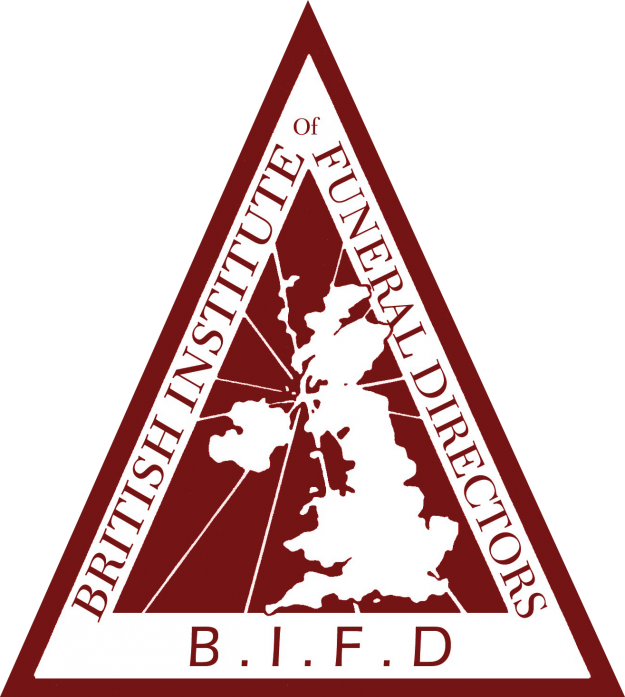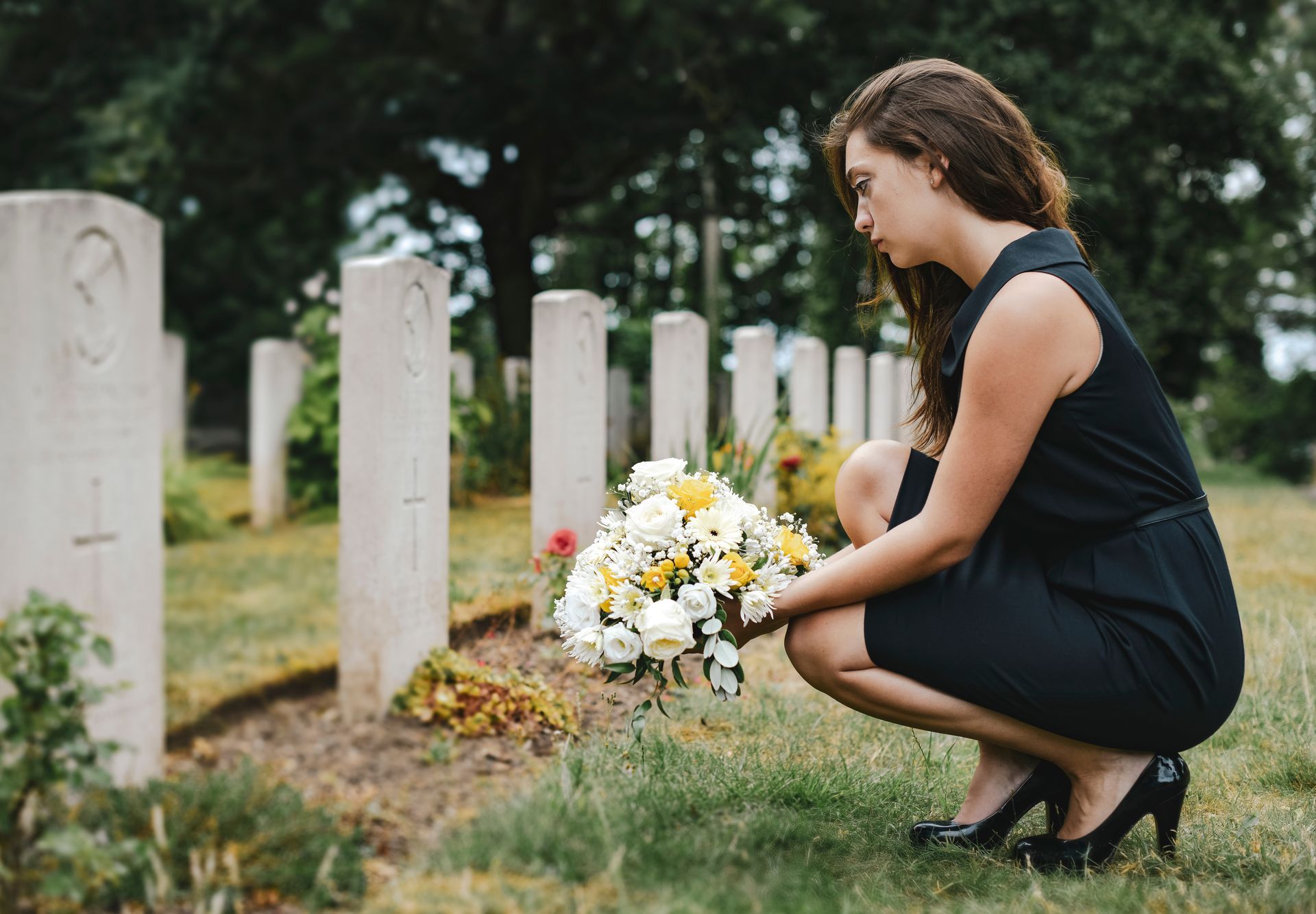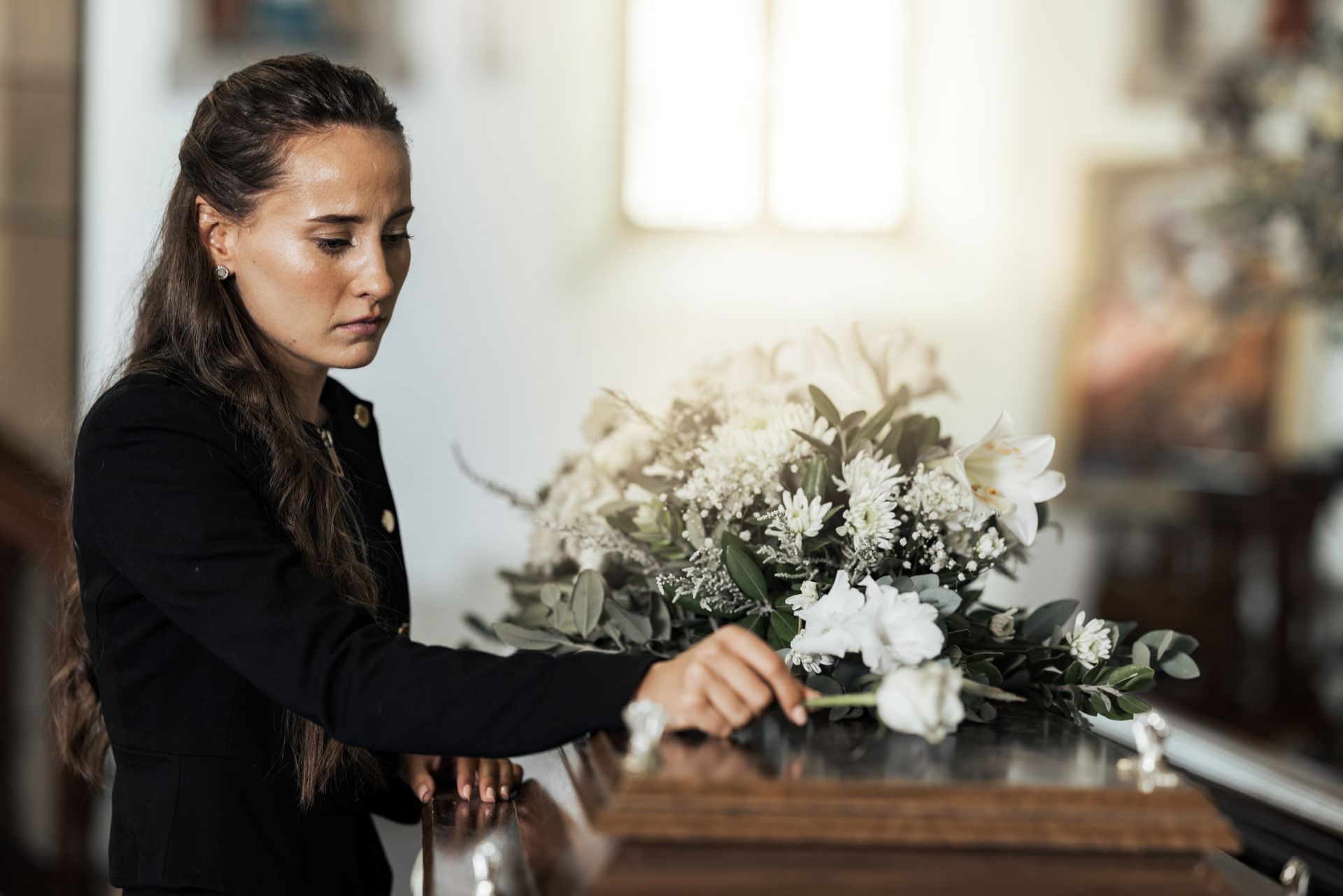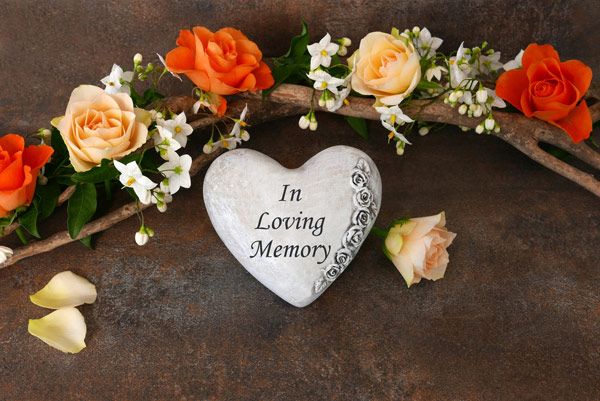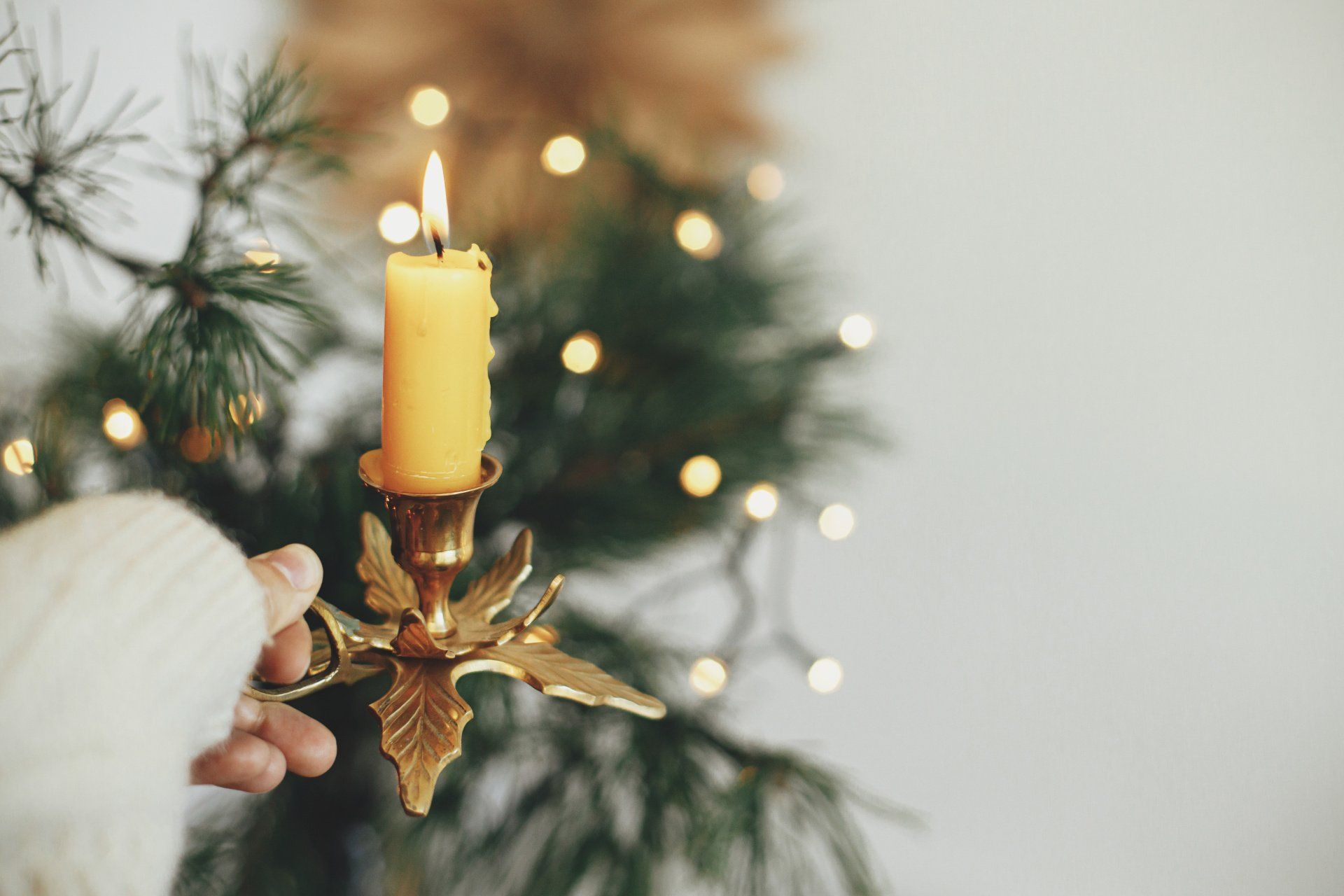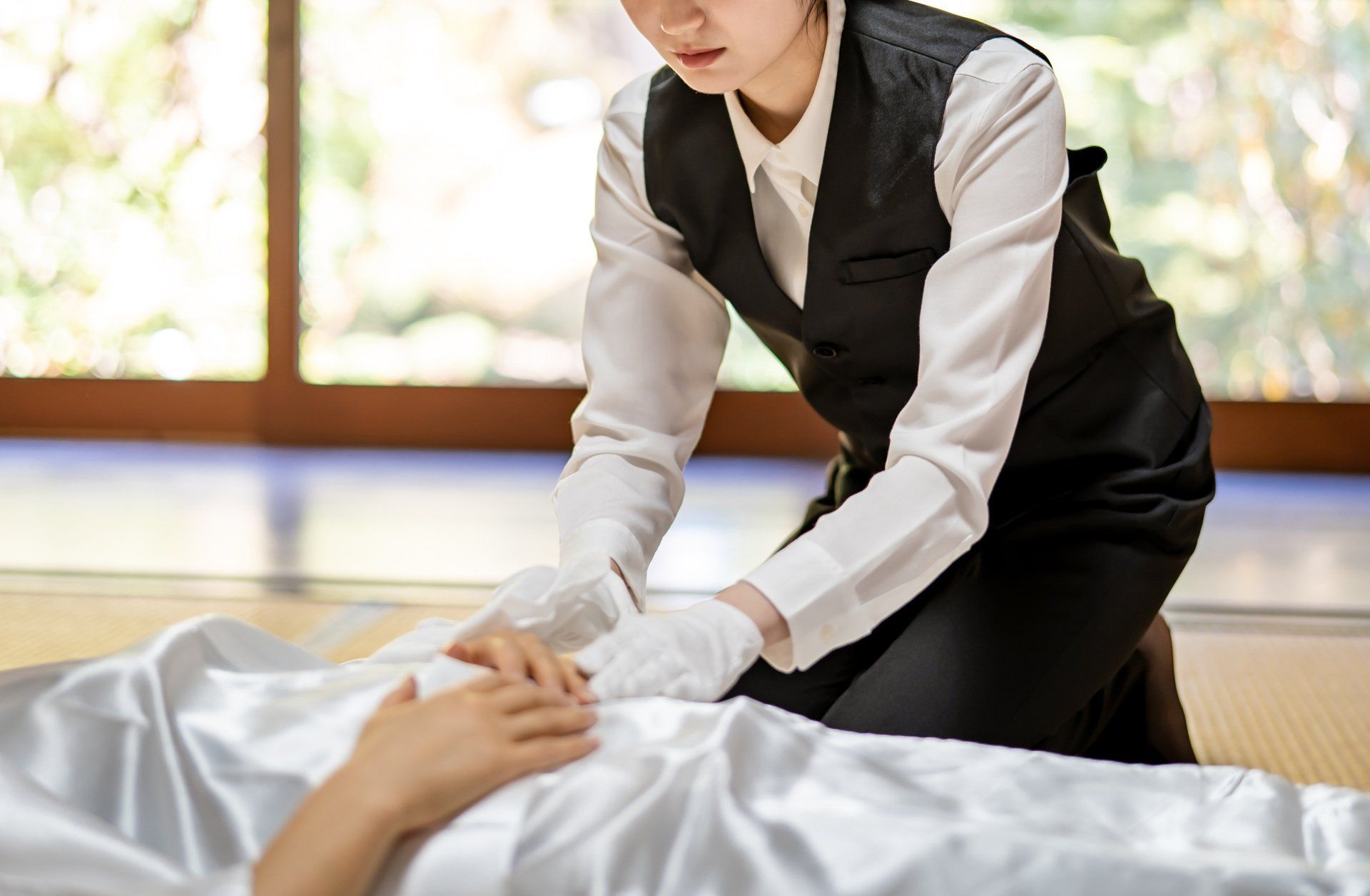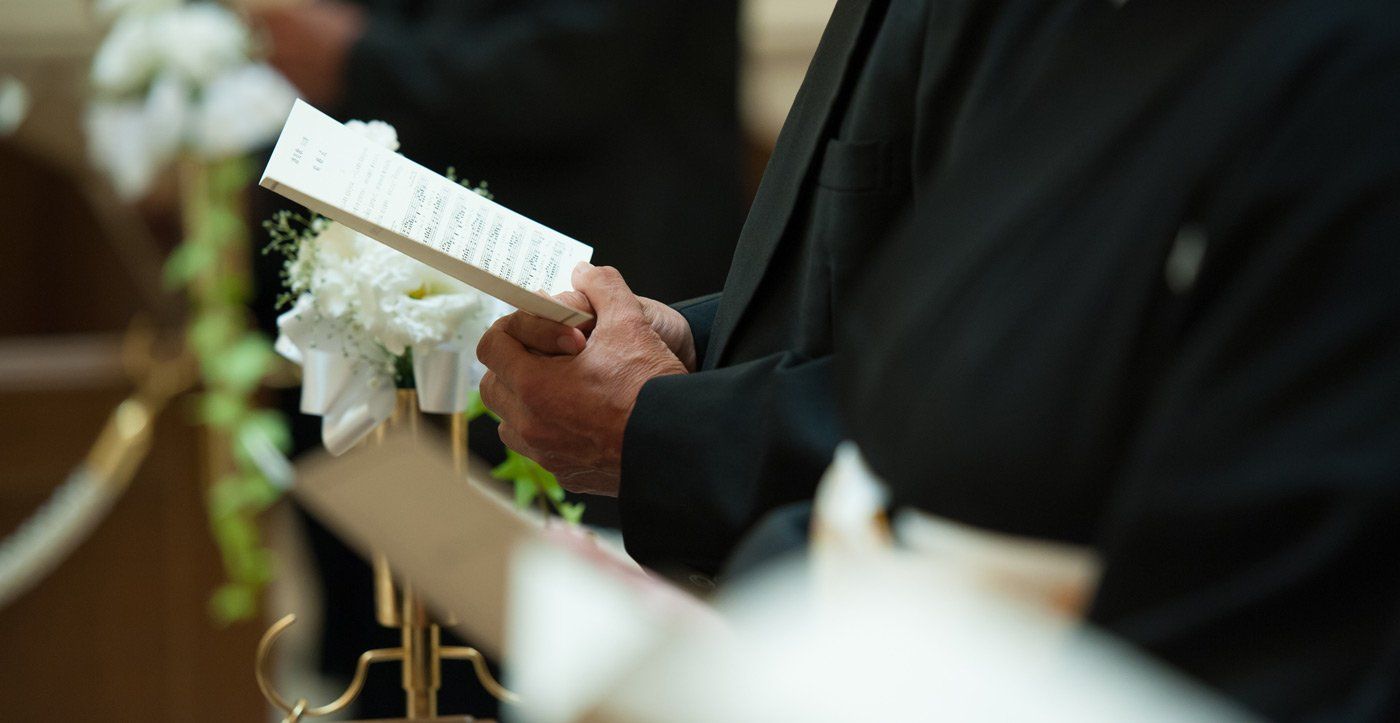What to do When Someone Dies
Most of us never stop to consider what we would do if a loved one died.

It is easy to feel engulfed in the practicalities and legal processes that come hand in hand with suffering a loss.
Waters and Sons understand that this is a distressing and confusing time, and that is why we have put together a guide on the most important things you need to do when a loved one passes away.
What to do When Someone Dies at home
Report the Death
When someone dies at home, the first step is to contact the person’s doctor, or phone the NHS 111 helpline as the death needs to be confirmed by a medical professional. This will either be their personal doctor or an on-call doctor if they died at night. They will then issue a certificate detailing the cause of death, which you will need when the local surgery contacts you to register the loss.
Contact Your Funeral Director
Once the death has been confirmed, it is time to call your Funeral Director. We will be there to collect your loved one, and look after them until the funeral.
Your funeral director will also be able to advise you on which information you will need to register their passing.
Register the Death
The next step is to register the death with the registrar’s office most local to where your loved one died. This needs to be done within 5 days of the confirmation of death.
The registrar will give you a green form called The Registrar’s Certificate for Burial or Cremation, which you will need to pass on to your funeral director. This form will act as authorisation for them to collect your loved one from the hospital mortuary.
Any relative of the deceased can register the death. In the case that no relatives are available then the responsibility falls to someone who was present at the death, or whoever is responsible for the funeral such as a funeral director or the council.
Waters and Sons have put together a
list of registrars local to us to make this step of the process just a little bit easier for you.
Once the death has been reported, and your loved one is in the safe hands of your funeral director, you will be able to begin the process of arranging the funeral.
At Waters and Sons, we provide 24 hour personal support. Please feel free to contact us at any time to find out how we can help.
What to do When Someone Dies in Hospital
When someone dies in hospital, the doctor will issue the medical certificate for cause of death immediately, and contact the next of kin.
Register the Death
The first step for you when a loved one dies in hospital is to register the death with the registrar’s office local to where your loved one died. This needs to be done within 5 days of the medical certificate being issued.
The registrar will give you a green form called The Registrar’s Certificate for Burial or Cremation, which you will need to pass on to your funeral director.
Contact Your Funeral Director
Your loved one will be kept in the hospital mortuary until your funeral director can collect them. This can be done at any time, but contacting your funeral director sooner will provide you with additional support through this confusing time. It will also reassure you that your loved one is being taken care of.
At Waters and Sons, we provide 24 hour personal support. Please feel free to contact us at any time to find out how we can help.
What to do When Someone Dies in Care?
When someone dies in a care home, the staff will be responsible for contacting the person’s doctor to confirm the death. The doctor will issue a medical certificate that details the cause of death. The care home will then contact the individual’s next of kin, and give them the opportunity to see their loved one before a funeral director is contacted.
Contact Your Funeral Director
Care home staff will usually help you choose and phone a Funeral Director as they are aware this will be a difficult time for you.
Your funeral director will soon be there to collect your loved one, and take care of them until the funeral.
Register the Death
The next step is to register the death with the registrar’s office most local to where your loved one died. This needs to be done within 5 days of the confirmation of death.
The registrar will give you a green form called The Registrar’s Certificate for Burial or Cremation, which you will need to pass on to your funeral director.
Once this certificate is in your possession, you will be able to start arranging your loved one’s funeral.
At Waters and Sons, we provide 24 hour personal support. Please feel free to contact us at any time to find out how we can help.
What to do When Someone Dies Abroad?
When someone dies abroad, the stress of trying to get your loved one back home can make the bereavement even tougher. But if you know which authorities to call, it can make the process a lot easier.
Report the Death
Deciding who to contact when a loved one dies abroad depends on whether or not you are with them.
If you are abroad with the person who has died, you will need to contact the local British Embassy. If you are still in the UK, then your first point of contact will be the Foreign and Commonwealth Office. These authorities will advise you of your next steps.
Register the Death
In the case of someone dying abroad, the death must be registered in the country where they died, as well as with the Foreign and Commonwealth Office.
If you are registering the death, you will need information about the deceased including:
- Full name
- Date of birth
- Passport number
- When and where the passport was issued
- Details of their next of kin
Repatriation
If you have decided to bring your loved one back to the UK, then you will need to register their death with the registrar’s office closest to where the funeral will take place.
Repatriation can take up to 15 days, and be fairly expensive. You may want to check whether your relative’s travel insurance or life insurance policies covered repatriation costs.
In order to return your relative to the UK, you will need:
- A death certificate that has been translated into English.
- A certificate of embalming.
- Authorisation to remove the body from the country of death.
The
British Consul or an international undertaker will be able to guide you through this process.
Once your loved one has returned to the UK, there are further steps to follow.
- The death should be reported to a coroner.
- The death certificate will need to be presented to the registry office nearest to the location of the funeral.
- In the case of cremation, you will require a Home Office cremation order.
You can only start funeral arrangements after all of the above have been obtained, but your funeral director will be able to guide you through the remaining process.
At Waters and Sons, we provide 24 hour personal support. Please feel free to contact us at any time to find out how we can help.
What Happens if the Death Was Unexpected?
If a person dies unexpectedly, then the death will be reported to a coroner. A coroner is a government official who is responsible for conducting an inquest into the cause of unexpected deaths. They will be contacted by a medical professional or police officer, so there is no need to worry about doing this yourself.
If the death needs to be investigated, then your loved one will be taken to a hospital mortuary, and your funeral director will be able to collect them once it has concluded.
If this is the case, a funeral cannot occur until the investigation is concluded, but funeral arrangements can still go ahead, and your funeral director will be able to offer any additional support that you need during this time.
Waters and Sons understand that an unexpected death can be especially confusing.
This is why we have a 24 hour support service for our customers. Feel free to contact us regarding any queries.
Arranging the Funeral
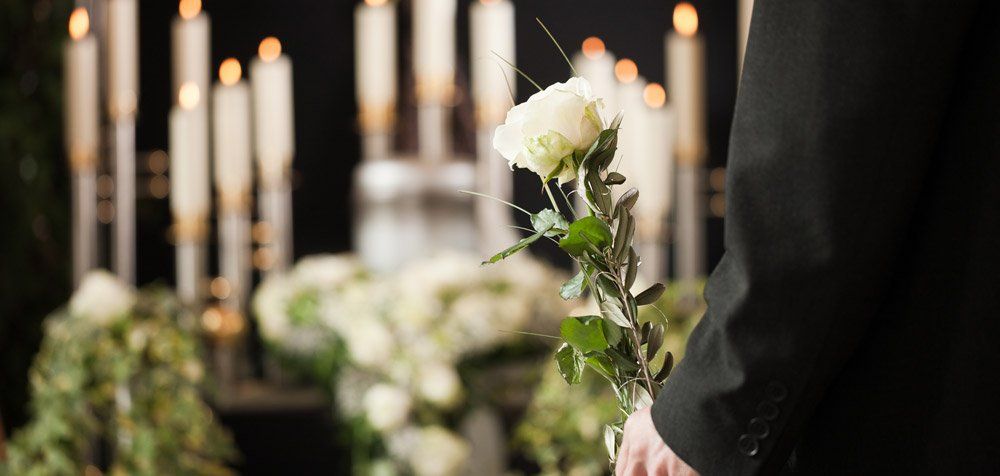
Once all the legal stuff is out of the way and your loved one is safely in the care of your funeral director, you will be able to begin planning the funeral.
Waters and Sons are aware that
arranging a funeral is one of the hardest things you will ever have to do. This is why we have created a guide on some of the most important things you will need to know when starting the funeral planning process.
What Happens to a Person’s Bank Account When They Die?
A person’s bank account will usually be left in the hands of an executor. The executor is often appointed before death and named in the individual’s will. This can be a blood relative, spouse, or a trusted friend. They are responsible for the deceased’s estate and assets.
When a person dies, their executor must contact their bank with proof of death, as well as their loved one’s will, to prove their relationship to the deceased. The bank will then freeze the account.
After this, the executor will need to ask for the funds to be released to meet the intentions of the will, and will have to provide a Grant of Probate in order to do so.
The executor will also need to contact the deceased’s pension service to cancel further payments. Their spouse or civil partner might be entitled to any remaining payments, but this will be explained further by the pension provider.
Who is the next of kin when someone dies?
When an executor hasn’t been named, the responsibility of arranging a funeral and managing the individual’s estate falls to the next of kin.
The next of kin will be the most immediate blood relative of the deceased, or a spouse or civil partner. It is likely that the next of kin will need to apply for probate in order to legally manage their loved one’s estate.
Tackling Grief
It is important to remember not to get caught up in the practicalities, and to give yourself time to address your grief.
Coping with grief is the most difficult part of the process, as there is no easy fix to cope with loss. The most important things to remember in this process are to express how you are feeling, keep looking after your health, and talk to your friends and family. They may also be suffering a similar experience, and will be as grateful as you are for the company.
You might not know what to say when someone dies, but it is always important to say something.
At Waters and Sons, we have put together a few ideas on
how to cope with grief to make the pain a bit more bearable. We have also created a list of
Hospital Bereavement Offices near us that can offer practical advice regarding the death of a loved one.
Extra Support
At Waters and Sons, we understand that dealing with the practicalities of loss while suffering a bereavement is a difficult process, and that is why we offer 24 hour personal support.
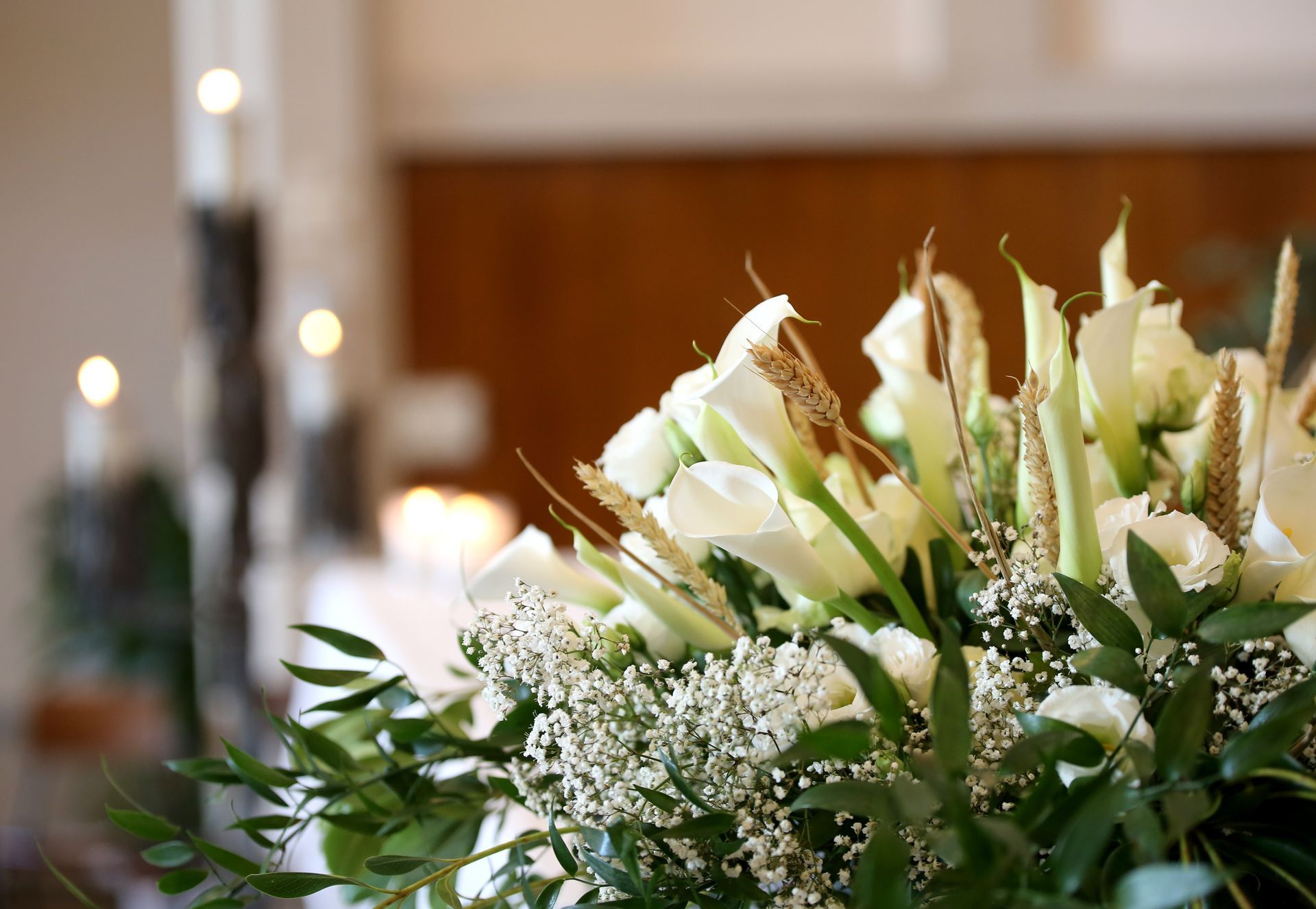

Home | Blog




